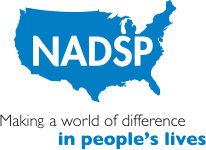
Virtual Training: When It’s Time to Fade: Supporting People with High Risk Behaviors
This 3 hour training session focuses on the very important topic of how to safely and effectively reduce restrictions and increases opportunities for individuals with Intellectual or Developmental Disabilities (I/DD) who have histories of high risk behaviors. Often, Direct Support Professionals are called upon to provide excellent support and supervision, in all types of settings, for individuals with I/DD who have histories of serious maladaptive behaviors such as severe aggression, sexual offending or fire setting. Often, as part of their support and supervision, these individuals are subject to certain restrictions, enhanced supervision or limitations on opportunities. But enhanced supervision is very expensive and we certainly do not want to subject individuals to restrictions any longer than is necessary. The question then becomes, “How do we fade restrictions, enhanced supervision or limits on opportunities while at the same time maintain our commitment to the safety of the individuals, staff and the public.
This training will examine the issues involved in these decisions and propose a methodology for developing and implementing a fading plan that is both safe and effective. The importance of defining and gathering data to inform our decisions on when and how much to fade will be reviewed. Finally, 12 essential skills that are important for Direct Support Professionals who provide quality support and supervision for individuals with I/DD who have histories of high risk behaviors will be discussed.
Wednesday, June 29, 2022
12:00pm – 3:00pm ET
$89 per Non-Member Attendee
$79 per NADSP Member Attendee – Use your Member password to receive $10 off registration
Learning Objectives
- Understanding the definition of fading is and why it occurs.
- What specific things should be faded?
- When is the right time to fade?
- How do we fade without increasing risks?
- How do we know if the fading is working?
- The importance of data in the fading process.
- Maintaining a balance between safety and risk while fading.
- Establishing and maintaining a positive and therapeutic relationship when implementing a fading plan.
Target Audience
DSPs, Supervisors, Administrators, People with Disabilities, Family Members
Presenters

John Finn
John Finn received a Bachelor of Science Degree in special education and a Master of Science degree in Rehabilitation Counseling from Syracuse University. He has worked in several capacities in various human services settings including direct care, community residence manager, and program coordinator. For 32 years he served as the Director of Forensic Services for the New York State Office of Mental Retardation and Developmental Disabilities, now the Office for People with Developmental Disabilities. For several years he was the Director of a free standing, secure, intensive residential treatment facility, certified as an ICF/MR. Mr. Finn retired from state service in 2010 and now serves as President of Forensic Specialists, offering full service consultations, expert evaluations and specialized training. Most recently Mr. Finn has pioneered the development and application of Person Centered Dynamic Risk Manageability, a comprehensive approach to supporting high risk individuals in community settings.
Mr. Finn is a clinical member of the Association of Treatment of Sexual Abusers and a member and past President of the Association of Professional Developmental Disabilities Administrators. He has provided expert testimony, consultation and training to all 50 states, the President’s Committee for People with Intellectual Disabilities, and The Centers for Medicare and Medicaid Services on topics including the assessment and treatment of people with developmental disabilities who have histories of high risk behaviors such as sexual offending, fire setting and severe aggression. He has assisted several states in designing systems for the individualized intensive care, treatment and support of individual with developmental disabilities who have significant involvements in the criminal justice system.
Participate In This Training
Click the link below to register via JotForms. Once completed, a confirmation email will be sent to all attendees.
Frequently Asked Questions
Can I purchase multiple registrations at once?
Yes, we have updated our registration to include multiple registrations. You can purchase up to 10 registrations at once.
What do I need for this training?
Will this training be recorded for those who cannot attend?
Will I receive a certificate for my attendance?
Yes. All registered attendees will receive a certificate at the conclusion of the training.
Will this training count towards my Accredited Training hours?
Will this webinar be closed captioned?
Yes. All attendees will have the option on their zoom screen to enable live captions. If an attendee requires a reasonable accommodation for this training, please email NADSP Office and Communications Manager, Nicole Dama at ndama@nadsp.org by June 10,2022.
Who should I contact if I have additional questions?
If you have questions about registration, please email NADSP’s Chief Operating Officer, Desiree Loucks Baer at dloucksbaer@nadsp.org.
